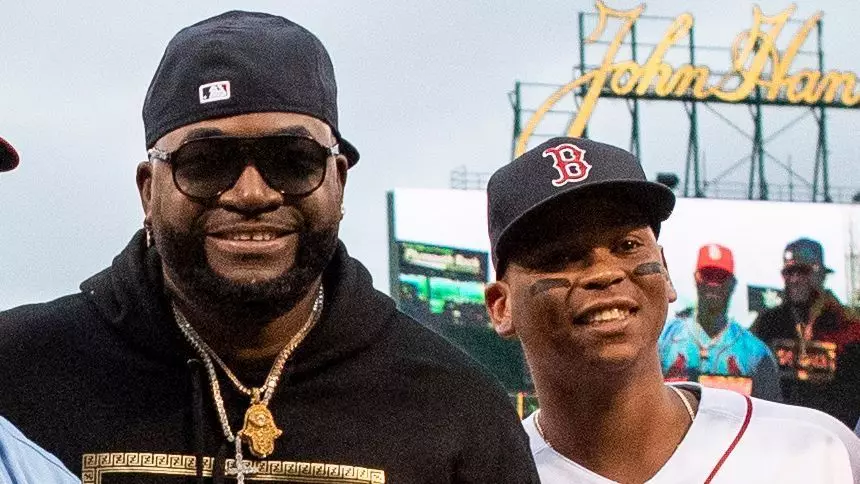The Boston Red Sox find themselves in a contentious situation regarding the future roles of their star player, Rafael Devers. As injuries disrupt the lineup and force the team to reconsider its positions, former Red Sox legend David Ortiz advocates for minimal interference in how Devers chooses to navigate his career. The underlying question revolves around the balance between team needs and individual preference—a theme that resonates throughout professional sports.
This season, the Red Sox inked a sizable contract with Alex Bregman, effectively locking Devers into the designated hitter spot. However, the unfortunate injury of Triston Casas has created a paradox. Suddenly, the organization is faced with the prospect of shifting Devers to first base, highlighting the precarious nature of sports decisions influenced by injuries and performance.
Decisions in Flux: The Shift from DH to First Base
While Ortiz expressed both support for Devers and the caution warranted in such a transition, it’s essential to acknowledge just how complex these decisions can be. Devers initially resisted the move to a DH role during spring training, a decision that shows his desire to maintain his versatility on the field rather than be pigeonholed into a specific function. This resistance indicates a player who values both personal growth and contribution to the team over time.
After suffering a challenging start to the season, Devers now looks to be turning his statistics around, boasting a commendable batting average and leading the league in runs batted in. These statistics reflect not just a positive adjustment but also speak to the importance of allowing players to become comfortable in their assigned roles. The question lurking beneath this success is whether Devers should now undertake additional responsibilities when his current role has propelled him towards personal and team achievements.
One Size Does Not Fit All: Ortiz’s Insight
David Ortiz, who excelled in the DH role during his illustrious career, uniquely understands the nuances of these discussions. His insights underscore a fundamental tenet of sports: each player’s journey is unique, and their paths to success may not coincide with management’s immediate needs. Ortiz refrains from imposing decisions upon Devers but instead emphasizes the importance of player agency in an evolving situation.
If Devers chooses to explore first base, it should come after a thoughtful period of acclimatization, not under the immediate pressure to fill a positional gap left by injury. Ortiz illustrates a key point when stating that expectations should align with what has been communicated to Devers, rather than imposing fluctuating requirements on him as the season unfolds.
Analytics and Intuition: The Evolving Game
Baseball has indeed evolved since Ortiz’s playing days, where the conventional wisdom often dictated the placement of players based on their physicality and skillset. Today, the landscape is getting shaped by analytics, which involves crunching numbers more than ever before. However, it risks replacing intuition, an area where players like Devers can significantly leverage their instincts and creativity.
The tension between old-school strategies and new-age analytics can lead to friction within a team. Ortiz’s perspective on the matter is especially relevant here; he acknowledges the shifting paradigms within the game while still cherishing the human element of choice and autonomy. When management’s decisions stray too far from the player’s preferences, it not only alters team dynamics but can also impact an athlete’s confidence and long-term development.
Social Impact Beyond the Field
While the discussion surrounding Rafael Devers demonstrates the balancing act of talent management, it is essential to remember that figures like Ortiz have a larger impact beyond the diamond. Through events like his charity golf tournament, Ortiz leverages his platform to change lives, providing resources for life-saving medical interventions. His motivation transcends sports, channeling what it means to be a leader and a role model.
Ortiz’s advocacy for Devers speaks to a broader narrative about empowering athletes. It’s not merely about the game but honoring the player’s wishes and building a culture where communication and support can thrive. By allowing players like Devers to navigate their careers on their terms, the Red Sox can cultivate an environment of trust, something invaluable in a sport where individual performances contribute to the larger team narrative.
This dialogue on Devers not only captures the essence of a ballpark conundrum but also reverberates through the wider spectrum of sports, ethics, and the human element that defines them.


Leave a Reply